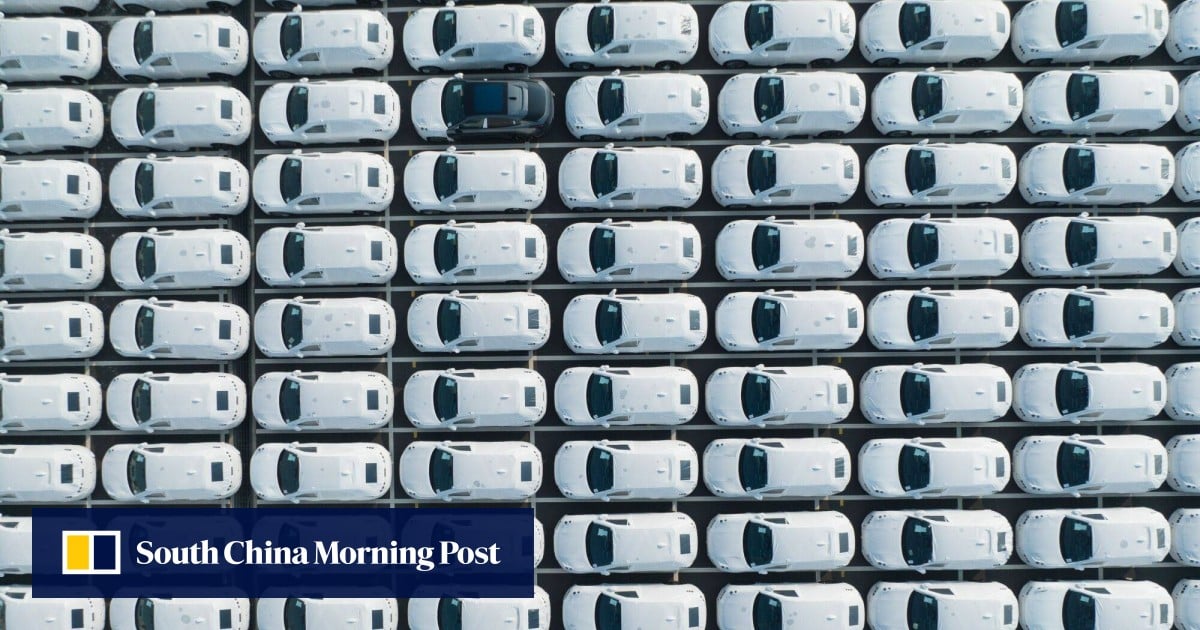“Something will need to change because Europe cannot just accept that strategically viable industries constituting the European industrial base are being priced out of the market,” he said. “That is where trade becomes a security question.”
As US, EU anxiety grows, will overcapacity curb exports of China’s ‘new three’?
As US, EU anxiety grows, will overcapacity curb exports of China’s ‘new three’?
In addition, China relies on advanced manufacturing and exports to prop up its economic growth, while pushing for indigenous technology and home-grown champions, which have raised concerns among foreign companies.
The chamber said in a report on navigating security risks in China, published on Wednesday, that overcapacity has distorted competition in the EU.
There needs to be perhaps a little bit more focus on the demand side in China
Brussels has also complained about its substantial trade deficit with China and Beijing’s slow progress in opening market access.
The EU trade deficit with China hit a decade record €397 billion (US$423 billion) in 2022 before falling to €291 billion last year, according to the bloc’s data.
“It is hard for me to imagine that Europe will sit by quietly and witness the accelerated deindustrialisation of Europe because of the externalisation of low domestic demand in China,” Eskelund said.
“In terms of alleviating some of this pressure, there needs to be perhaps a little bit more focus on the demand side in China to create that demand that will make China less of a perceived threat.”
The report said the EU’s de-risking strategy, which was unveiled last March, is not aimed specifically at China, though it does have “a strong China component” due to a lack of reciprocity in market access and public procurement, state-backed investments into critical infrastructure and technologies in the EU that could potentially impact security.
Foreign businesses in China are more likely to be exposed to regulatory dilemmas caused by geopolitical tensions, the report added.
“The build-up of China’s comprehensive legal toolbox to retaliate against what it perceives to be foreign interference and long-arm jurisdiction allows the Chinese government to sanction specific foreign companies or individuals, and by doing so disrupt their China operations by, for instance, restricting their investment or market access to China,” it said.
China rails against EU’s train subsidy probe – will relations stay on track?
China rails against EU’s train subsidy probe – will relations stay on track?
Much more honest conversations are needed between China and Europe, as solutions are required to address “the unfolding of a slow-motion train accident”, Eskelund added.
In addition, China has taken steps to mitigate risks associated with an over-dependence on foreign supply chains amid Beijing’s focus on self-reliance.
The report said that during China’s self-reliance push, some imports have been replaced by Chinese or China-based suppliers following provincial or municipal incentives or “pressure”, which have put European firms at “distinct disadvantages”.
“In some sectors deemed integral to China’s national security, policymakers have gone a step further, issuing explicit directives to replace foreign components and technologies with domestic ones,” the report said, listing procurement rules in IT hardware and medical devices.
With the increasingly complex geopolitical environment Chinese policymakers see operating in, the chamber suspects that China is likely to expand its toolkit to address a growing number of matters regarding national security.
But to create a more sustainable environment for foreign businesses, the chamber said China should steer away from excessive self-reliance and mitigate economic risks in a surgical and precise manner.
China should “refrain from erratic policy shifts or punishing companies for the actions of their home governments”, while “develop nuanced strategies for strengthening supply chains that do not err towards trade protectionism”, the chamber said in the report.
It also called on China to “engage in dialogue with other governments and key stakeholders to depoliticise the business environment”.
